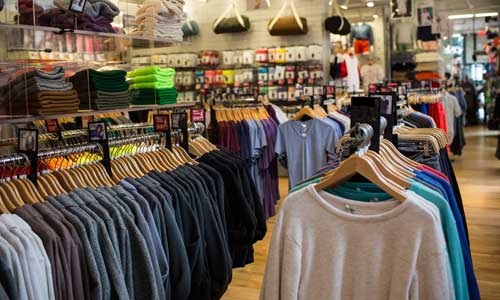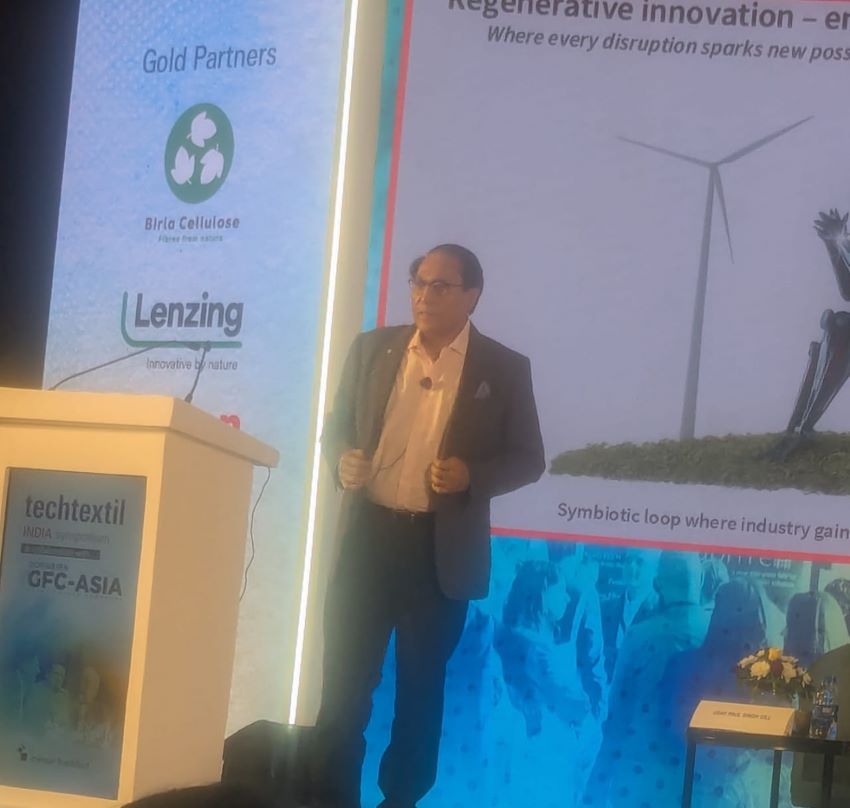FW
The Woolam Gin in the US has been awarded the Global Organic Textile Standard certification. This makes it the first certified US organic cotton gin utilizing Applied DNA’s molecular tagging system, which provides a single platform to tag, test, and track the organic cotton fibers throughout a certified supply chain.
The GOTS standard provides a chain of custody assurance covering cotton processing, manufacturing, packaging, labeling, trading and distribution of home and apparel textiles made with organic fiber. The standard prohibits the use of toxic inputs during the processing stages and includes strong labor protections, including prohibitions on child labor. As of January 2017, more than 1.4 million workers in more than 4,600 facilities in over 60 countries were certified under GOTS.
Woolam Gin is a third-generation family operated cotton gin. In 1991, it became the first gin in the United States to gin organic cotton. It is committed to processing cotton of the highest standard.
Applied DNA offers molecular technologies that enable supply chain security, anti-counterfeiting and anti-theft technology, product genotyping and DNA mass production for diagnostics and therapeutics. It provides innovative, molecular-based technology solutions and services that can help protect products, brands, entire supply chains, and intellectual property of companies, governments and consumers from theft, counterfeiting, fraud and diversion.
India has requested Uzbekistan to consider reduction of import tariff imposed by Uzbekistan, especially on fabrics and made-ups. India’s commerce and industries minister Nirmala Sitharaman urged visiting Uzbek ministers to reduce duty on readymade garments and to simplify the procedure for registration and certification.
Uzbek minister of foreign trade Elyor Ganiev and minister of foreign affairs Abdulaziz Kamilov held detailed discussions with Sitharaman on deepening trade and economic ties between India and Uzbekistan. Sitharaman suggested setting up and activation of a private industry led Joint Business Council to develop and enhance business relations at all levels including investments, trade in goods and services.
Sitharaman also requested Ganiev to consider reduction of import tariff which are comparatively higher especially on fabrics and madeups (up to 30 per cent), MFN duty on readymade garment products which is 31.1 per cent and simplifying the procedure for registration and certification.
The Indian side also requested Uzbekistan to become a member of multilateral INSTC Agreement which would facilitate increased international transit cargo traffic through Iran. Both sides underlined the high importance of transport and logistics infrastructure for strengthening bilateral trade ties.
The International Apparel Federation (IAF) has secured a partnership agreement with World Textile Information Network (WTiN), delivering members major savings on subscriptions to WTiN’s comprehensive textile information portal.
The portal is organised into a series of insight channels, each focusing on a textile community such as knitting and weaving, effects or technical textiles. Additionally the portal delivers an expanding suite of deep market intelligence channels, currently comprising textile economics, digital textiles, medical textiles and performance textiles channels.
WTiN will offer a discount of 23 per cent on new subscriptions to IAF members and associate members. In addition, new subscribers introduced by the IAF will be entitled to one year’s free subscription to their choice of business-to-business magazines from WTiN’s portfolio.
WTiN is a leader publisher of business and technical insights for the global textile industry. The magazine portfolio includes Digital Textile, the world’s most important source of information for digital printers; Twist, for traders, processors and brands using natural fibers; and International Dyer a heritage of almost 140 years, and covers the full range of textile finishing applications.
IAF is the world’s leading federation for apparel manufacturers, brands, retailers, their associations, and the supporting industry. Associate members of IAF are prominent companies or institutes in technology, business services, retailing, logistics, culture and education.
Egypt wants to corner a larger global share for cotton amid competition from lower-quality cotton producers. A decision to set a guaranteed price for buying cotton from farmers has led to a significant increase in cultivated areas. These are the prices the government will pay to farmers in case they cannot sell their crops.
Difficulties in obtaining foreign currency make textile factories buy more Egyptian cotton for their production. There has been a tightening of controls over farms that cultivate lower-quality cotton. Inspections were tightened last season, resulting in higher production of good quality long staple cotton for which Egypt is best known. Egypt hopes for higher exports as a result of more areas being cultivated by cotton. It is also looking to more raw cotton going textile factories before being exported to gain from added value.
Raw Egyptian cotton is exported to countries like Pakistan which mix it with lower quality material and sell it as Egyptian cotton. This has harmed the reputation of Egyptian cotton in the global market. So the country will export thread and fabric rather than raw cotton.
Textile factories in Egypt currently import cotton because it is cheaper. Egypt may increase import duties on cotton to support locally produced crops.
Cambodia has launched the Cambodia Garment Training Center Institute (CGTI) for workers in the garment and textile industries to gain intensive skills for the development of productivity in the sector. The garment industry has been growing for decades and employs almost one million people while contributing to the country’s economic growth. With more than one million workers there are 1,168 factories and enterprises in Cambodia.
With a soft loan from the French Development Agency (AFD), CGTI has been built by the Garment Manufacturers Association in Cambodia. Andrew Tey, Director of CGTI, points out Cambodia’s garment and footwear industry is facing many challenges and competition, while wages are set to be reviewed and will increase year-on-year, this requires better quality of production.
Right now Cambodia lacks a soft training institute, that’s why GMAC is pitching in to improve productivity. Else Cambodia will lose business to competitors countries like Vietnam, while Myanmar. The CGTI in cooperation with Singapore-based TaF.tc is providing Singaporean trainers and setting up courses for its first three years to train locals to become next batch of trainers.
Tey says the institute has already held its first class in mid-July, which comprised 43 students from three garment factories who are now working as assistant supervisors and team leaders
Cambodia feels the GSP granted by the US doesn’t go far enough. Cambodia has duty free and quota free status from the US for 82.6 per cent of its products. The country feels this does not cover products with potential which it can produce and export to the United States. Instead, Cambodia says its main products including luggage and leather goods are charged duty. It wants the United States to consider offering duty free preference to such commodities under a system that will ensure that Cambodia will truly benefit from exports to the US and have more market access to the US.
Improving working conditions in factories was one of the main criteria set by the US when it granted preferential trade treatment. And Cambodia says it has performed well in improving conditions of garment workers who are now paid decent salaries, allowing many families to get out of poverty. Cambodia’s garment and footwear sector exports rose by 7.2 per cent in 2016 compared to 2015. The country gets 100 per cent preference from Australia, New Zealand, Norway and Switzerland and 99 per cent preference from the EU under the Everything But Arms clause.
The Nitol-Niloy group of Bangladesh is keen to invest in the textile sector in India. The diversified group has business interests in automobile and engineering and is planning a spinning mill project in West Bengal to convert cotton into yarn, which will then be exported to Bangladesh for consumption by its large garment industry.
The group is eyeing a joint venture and an investment in the project of around Rs 300 crores. The group is also eyeing projects in the specialised garments segment with retail chains across the country. Among Bangladeshi investors, the Bashundhara Group plans to invest in a paper-based industry, while the Pran group, an FMCG leader in Bangladesh, has already started selling its products in eastern India.
Nitol-Niloy is developing a special economic zone in Bangladesh and eyeing investments from Indian companies. The SEZ will have around 80 to 100 plots spread across an area of 103 acres and the focus is on automobile assembly, ancillary industries as well as engineering equipment.
Indian industry has invested around $3 billion in Bangladesh. Leading players such as Tata Motors, Hero, Sun Pharma, Airtel and Aditya Birla Cement have invested in the country. Anil Ambani-run Reliance ADAG and the Adanis have announced plans to invest in the energy and port sectors. ONGC is set to invest in two shallow-water oil and gas blocks.
Bangladesh has created a fund for the garment industry which will be used to compensate workers or their children in case of injuries or death at the workplace. Garment factory owners have been urged to keep workers’ welfare in mind and give them a share of the annual profits as workers are the main instrument to keep their business operational.
Labor laws have been amended for the welfare of workers. Safety and security measures in garment industries and factories have been beefed up. Wages of workers in the readymade garment sector have been raised. Advance tax for readymade garment industries has been reduced to 0.70 per cent.
The income tax rate for green industries has been reduced to 10 per cent from 20 per cent, and 12 per cent from 20 per cent for other industries. The import tax on raw materials of prefabricated building and fire extinguishing equipment has been reduced to five per cent.
Bangladesh set a target of earning $50 billion from readymade garment exports by 2021. The readymade garment sector is vital for Bangladesh economy as it contributes immensely to the country’s export earnings, employment generation and value addition.
"As per Euromonitor International’s baseline scenario, global apparel sales are forecast to rise by $156 billion from 2016 to 2019 (measured in current prices), provided economic growth evolves. This essentially means that in three years, global sales are set to rise eight times the annual turnover of the world’s largest apparel corporation, H&M Hennes & Mauritz AB, which generated $19.8 billion in sales in 2016. However, global growth is unevenly distributed. Only six countries will account for two-thirds of the forecast global growth, namely China, the US, India, the UK, Russia and Mexico."

As per Euromonitor International’s baseline scenario, global apparel sales are forecast to rise by $156 billion from 2016 to 2019 (measured in current prices), provided economic growth evolves. This essentially means that in three years, global sales are set to rise eight times the annual turnover of the world’s largest apparel corporation, H&M Hennes & Mauritz AB, which generated $19.8 billion in sales in 2016. However, global growth is unevenly distributed. Only six countries will account for two-thirds of the forecast global growth, namely China, the US, India, the UK, Russia and Mexico. Furthermore, focusing on cities – i.e. at even more detailed geographic level – may further narrow the list of locations with the best potential for new stores. While the global apparel sales growth forecast is impressive, two-thirds of the total growth will take place in only six countries around the world, including four emerging markets.
Emerging cities with growth potential

Apparel retail sales in China are expected to rise by an impressive $60 billion over the forecast period. Focussing on key cities in China may help capture most of the growth at minimal costs. While China’s six megacities with over 10 million people account only for 7.2 per cent of country’s population, they will account for 19 per cent of total growth of consumer expenditure on clothing and footwear.
India’s growth outlook is also very promising. However, India is less urbanised in comparison to China and accessing significant share of the Indian apparel market would require coverage of a larger number of Indian cities. The six most rapidly growing cities in terms of consumer expenditure on clothing and footwear include Mumbai, Bengaluru, Chennai, Kolkata, Delhi and Hyderabad. However, all of them combined will account for only 10 per cent of total forecast growth of consumer expenditure in India. To capture one-fifth of the growth of apparel sales (which required being present in six major cities in China), investors would need to carry out activities in at least 40 major Indian cities.
Mexico and Russia are two other promising markets for apparel retailers. They rank among the fastest emerging markets for apparel, even if their total market size will grow by relatively modest terms in comparison to India or China – namely, $4-5 billion in each country over 2016-2019. Geographically, investment should be even more concentrated in Russia and Mexico in comparison to China or India. Both countries are dominated by their key megacities, Moscow and Mexico City, respectively, which will account for 31 per cent and 15 per cent of total consumer expenditure growth. Growth in Moscow, given the relatively stable forecast of the Ruble’s exchange rate, would be at par with major Chinese metropolitan areas in terms of expected consumer expenditure growth.
Patagonia has sued an e-commerce company called Dazzle Up for selling product through its Simply Southern brand that allegedly infringes on Patagonia's Fitz Roy trademark.
Patagonia has alleged that Dazzle Up’s brand, Simply Southern, has been selling tees with graphics that look like copies of the outdoor brand’s registered mark.
Patagonia is claiming trademark infringement and dilution. In its complaint, it alleges that consumers would be confused about the origin of the products being sold on Dazzle Up. Patagonia is protecting its mark which it claims has enormous goodwill among consumers both in the US and globally.
Patagonia originally put the Fitz Roy mark into use in the seventies when the company formed. It gained official protection in 1984 and has subsequently registered two updates to the mark in 1989 and 1993. Patagonia also holds a copyright to the image.
Patagonia further argues in its complaint that Simply Southern copied all elements of the Patagonia logo including the font. The complaint points out that even the intentional design elements in Patagonia's mark such as uneven spacing of the color bands and the silhouette of the mountains are copied in the Simply Southern graphic.
Patagonia is asking the court for an injunction to prevent further sales of the designs.












